Sign up to get the Sloww Sunday newsletter via email for free:👇
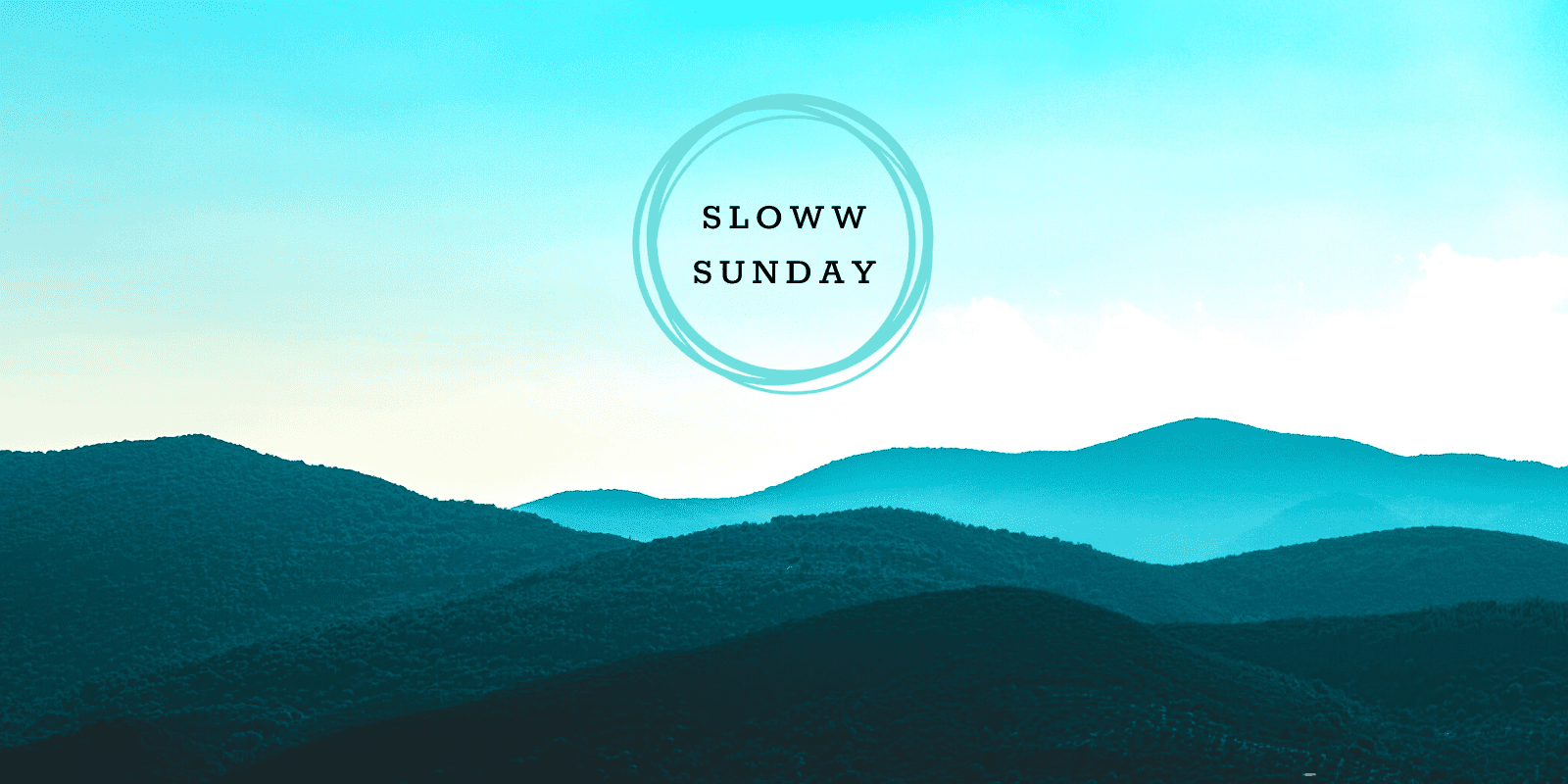
Sloww Sunday Newsletter 205 (Dec 22, 2024) — The Hero’s Journey, Follow Your Bliss, Power of Myth, & More
The Sloww Sunday newsletter sends to 10,000+ readers downshifting into deeper living. If you enjoy this issue, please help grow Sloww by forwarding this newsletter to others.
New to Sloww? Here’s what it’s about in a nutshell (which mirrors the newsletter sections below):
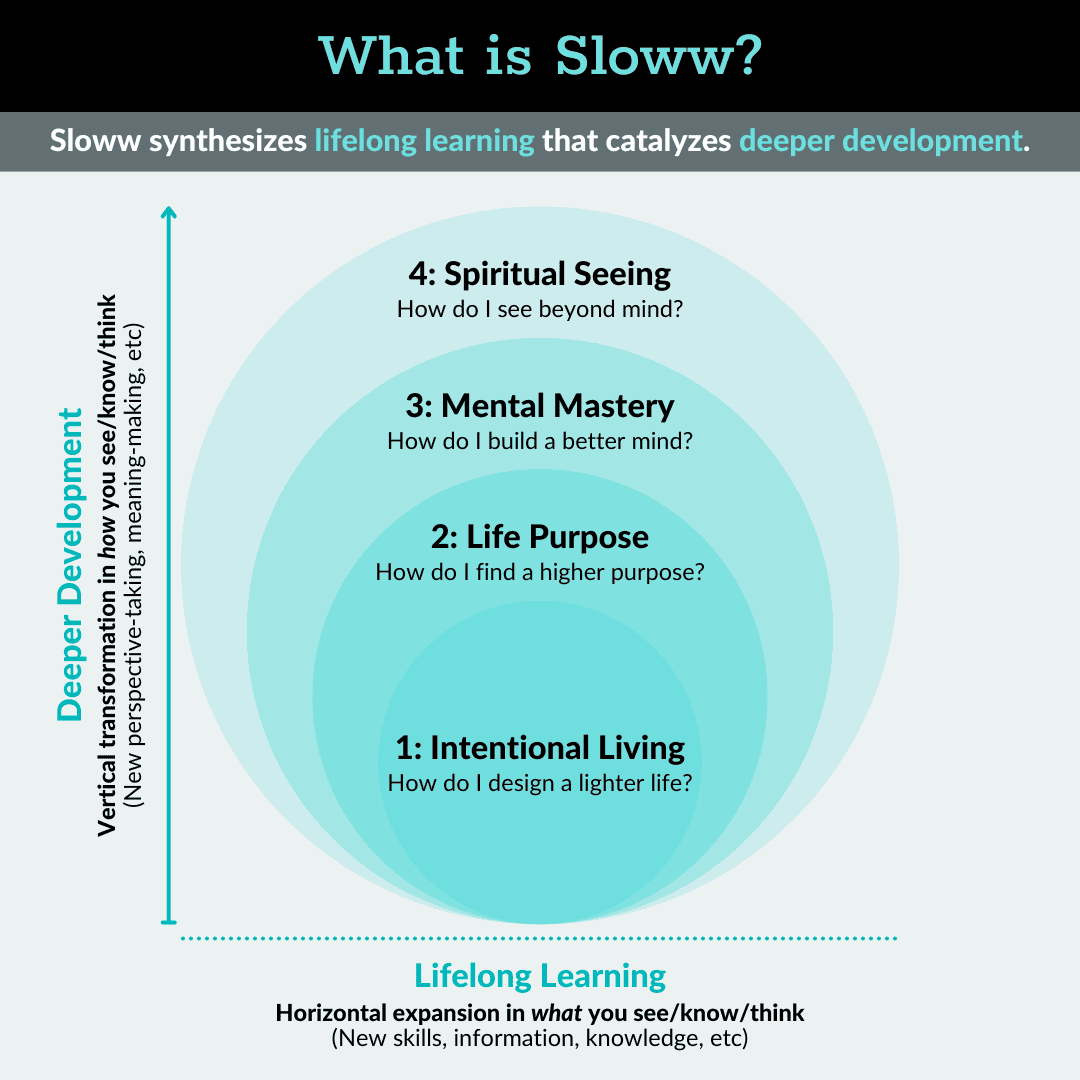
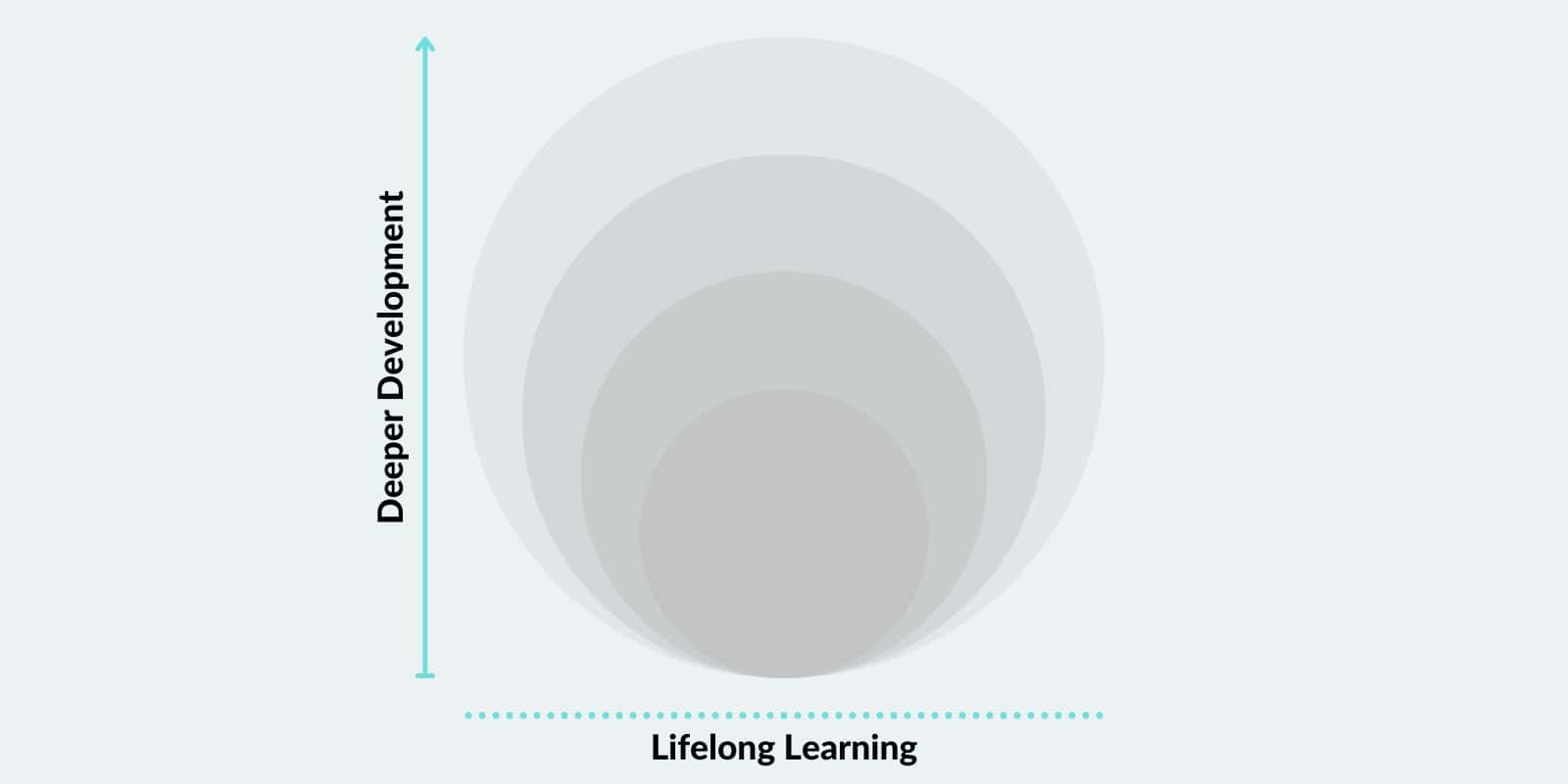
🌀 What does the hero’s journey really mean?
I finally listened to all 6 hours of the 1988 series The Power of Myth with Joseph Campbell and Bill Moyers (Series Summary). There’s so much good stuff in it that I’m dedicating this entire newsletter issue to its top lessons. Let’s start with what Campbell says about the hero’s journey.
Despite the plots you see portrayed in movies, the hero’s journey isn’t necessarily a physical journey to faraway lands—it’s primarily a psychological journey to your inner depths (in developmental terms, the hero’s journey represents a perspective transformation from a previous way of seeing and living to a new stage of psychological development):
- “Where we had thought to travel outward, we shall come to the center of our own existence … The basic motif of the hero’s journey is leaving one condition and finding the source of life to bring you forth in a richer, more mature condition … You get out of that posture of psychological dependency into one of psychological self-responsibility … The goal of your quest for yourself is to find that burning point in yourself … to find the inward thing that you basically are.” — Joseph Campbell
Similarly, death and rebirth aren’t necessarily physical, but primarily psychological (in developmental terms, you are ‘dying’ to your previous identity and ‘reborn’ in your new identity):
- “It’s a basic theme: that which dies is born. You have to have death in order to have life … They’re two aspects of the same thing, which is being/becoming … You as you know yourself are not the final term of your being. And you must die to that one way or another … This is an essential experience of any mystical realization: you die to your flesh and are born to your spirit. You identify yourself with the consciousness and life of which your body is but the vehicle. You die to the vehicle and become identified in your consciousness.” — Joseph Campbell
Along the journey, the real dragons to fight aren’t ‘out there’, but are ‘in you’ (in developmental terms, this could be facing your shadow and doing ‘clean up’ shadow work, or it could refer to cognitive dissonance that can occur between shifts to new psychological stages, attachment to your current identity, etc):
- “Where we had thought to slay another, we shall slay ourselves … The real dragon is in you. That’s your ego, holding you in … Somehow with the diminishment of your own ego, the consciousness expands.” — Joseph Campbell
All in all, you can only ever experience the hero’s journey you are ready for (in developmental terms, developmental stages cannot be skipped, and you always find yourself in the midst of a specific subject-object relationship):
- “The achievement of the hero is one that he is ready for, and it’s really a manifestation of his character. And it’s amusing, the way in which the landscape and the conditions of the environment match the readiness of the hero. The adventure that he’s ready for is the one that he gets.” — Joseph Campbell
Sloww Premium members can pair with: 🔒 Is Life a Sine Wave of Repeated Hero’s Journeys?
0️⃣ Explore More: 50+ posts on Lifelong Learning & Deeper Development (Sloww Stage Support)
🧠 Featured Product: Synthesizer Course: The Flagship Course for Synthesizing Minds
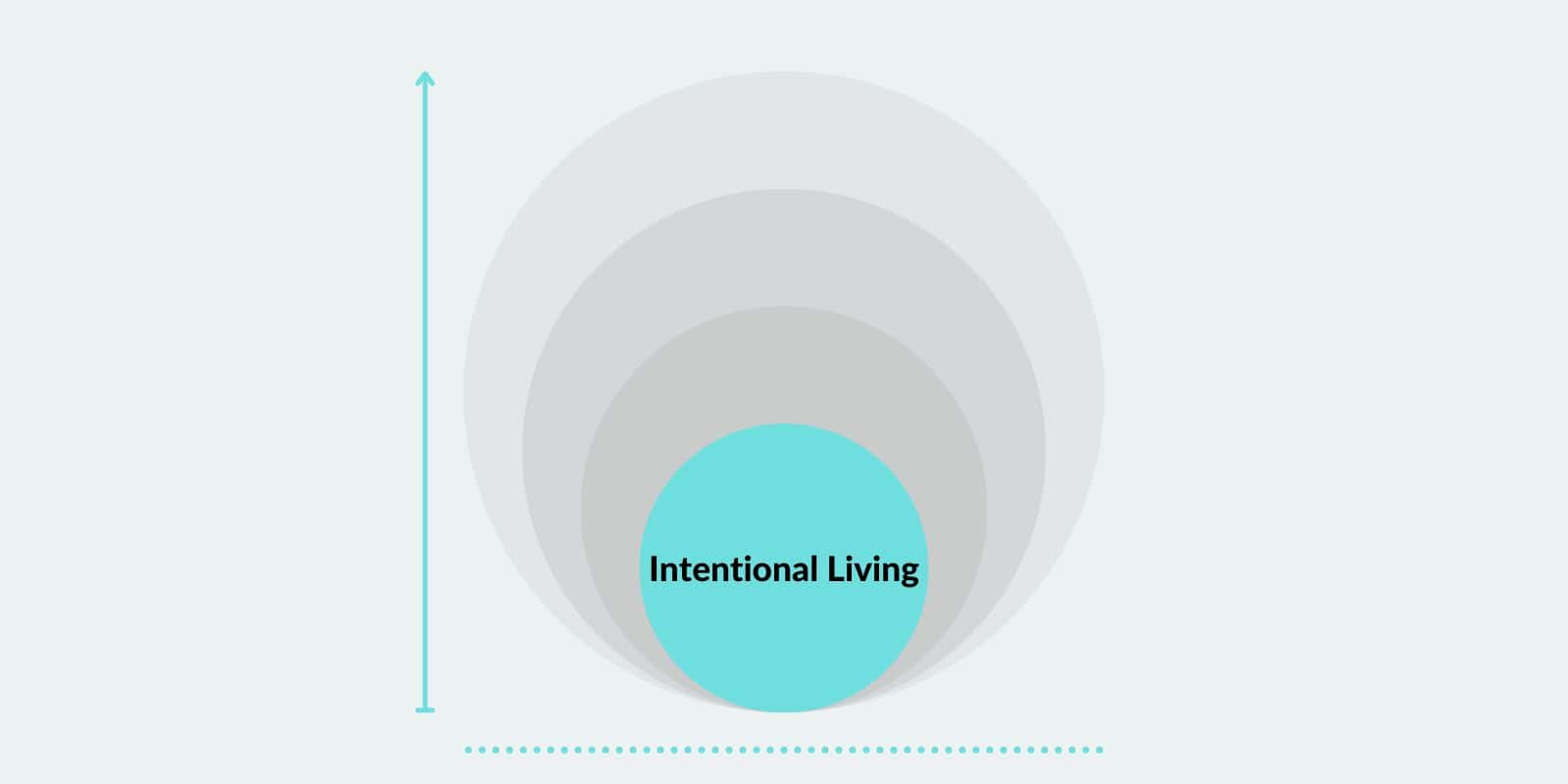
🤖 Are you living a programmatic life?
Continuing the top lessons from The Power of Myth with Joseph Campbell and Bill Moyers (Series Summary), Campbell warns us about living a life of ‘occasional concerns’ instead of listening to ourselves:
- “Most people are living in that realm of what might be called ‘occasional concerns’ … Most of our action is economically or socially determined, and does not come out of our life … The world’s full of people who have stopped listening to themselves.” — Joseph Campbell
And, what happens when you don’t listen to yourself?
- “If the person doesn’t listen to the demands of his own spiritual and heart life, and insists on a certain program, you’re going to have a schizophrenic crack-up. The person has put himself off-center; he has aligned himself with a programmatic life … There’s something inside you that knows you’re in the center—that knows you’re on the beam, that knows you’re off the beam. And if you get off the beam to earn money, you’ve lost your life.” — Joseph Campbell
The real question is what are you going to do about it?
- “This is the threat to our lives; we all face it, we all operate in our society in relation to a system. Now, is the system going to eat you up and relieve you of your humanity, or are you going to be able to use the system to human purposes? … I think that’s the great thing in the West: the validity of the individual’s experience of what humanity is, what life is, what values are, against the monolithic system.” — Joseph Campbell
1️⃣ Explore More: 100+ posts on Intentional Living (Sloww Stage 1)
😃 Featured Product: The Hierarchy of Happiness: 100+ Powerful Perspectives on How to be Happy (Free eBook)
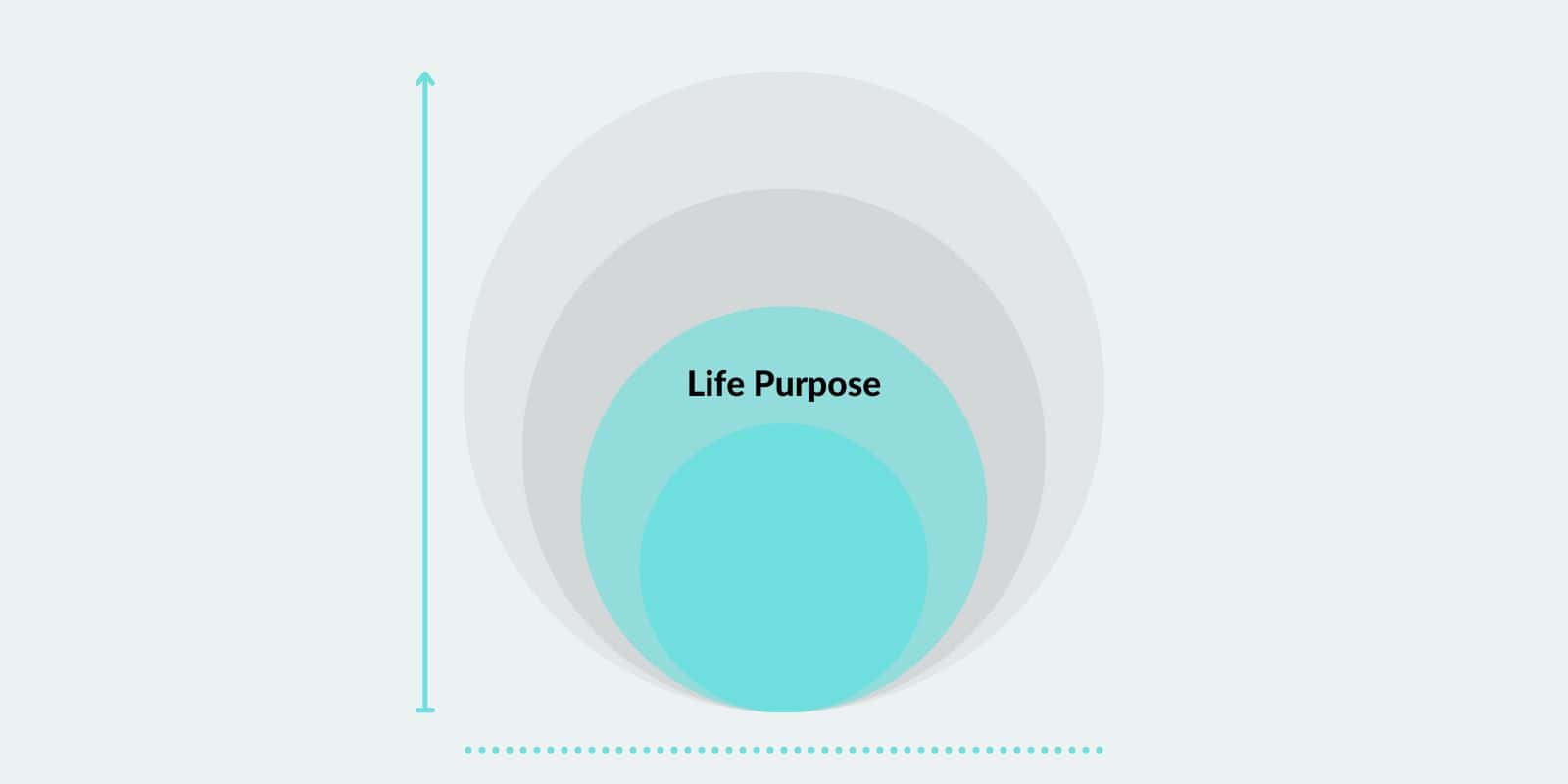
🤩 Are you following your bliss?
Building on the section above about fighting back against a programmatic life, Joseph Campbell recommends following your bliss in The Power of Myth (Series Summary).
What does it mean to follow your bliss?
- “The moral is that the realization of your bliss, your true being, comes when you have put aside the … ‘you should live this way’ … My general formula for my students is, follow your bliss. Find where it is, and don’t be afraid to follow it … If the work that you’re doing is the work that you chose to do because you are enjoying it, that’s it … Any life career that you choose in following your bliss should be chosen with the sense nobody can frighten me off from this thing … When you have that feeling, then stay with it and don’t let anyone throw you off.” — Joseph Campbell
What happens when you follow your bliss?
- “If you do follow your bliss, you put yourself on a kind of track that has been there all the while, waiting for you, and the life that you ought to be living is the one you’re living somehow … You begin to deal with people who are in the field of your bliss, and they open doors to you. I say, follow your bliss, and don’t be afraid, and doors will open where you didn’t know they were going to be.” — Joseph Campbell
Where is your ‘bliss station’?
- “Where is your bliss station, you know? Try to find it … You must have a room, or a certain hour a day or so, where you do not know what was in the newspapers that morning, you don’t know who your friends are, you don’t know what you owe to anybody, you don’t know what anybody owes to you, but a place where you can simply experience and bring forth what you are and what you might be. This is the place of creative incubation. And first you may find that nothing’s happening there, but if you have a sacred place and use it, and take advantage of it, something will happen.” — Joseph Campbell
2️⃣ Explore More: 50+ posts on Life Purpose (Sloww Stage 2)
🧭 Featured Product: Ikigai 2.0: A Step-by-Step Guidebook to Finding Life Purpose & Making Money Meaningfully (+ Bonus Workbook)
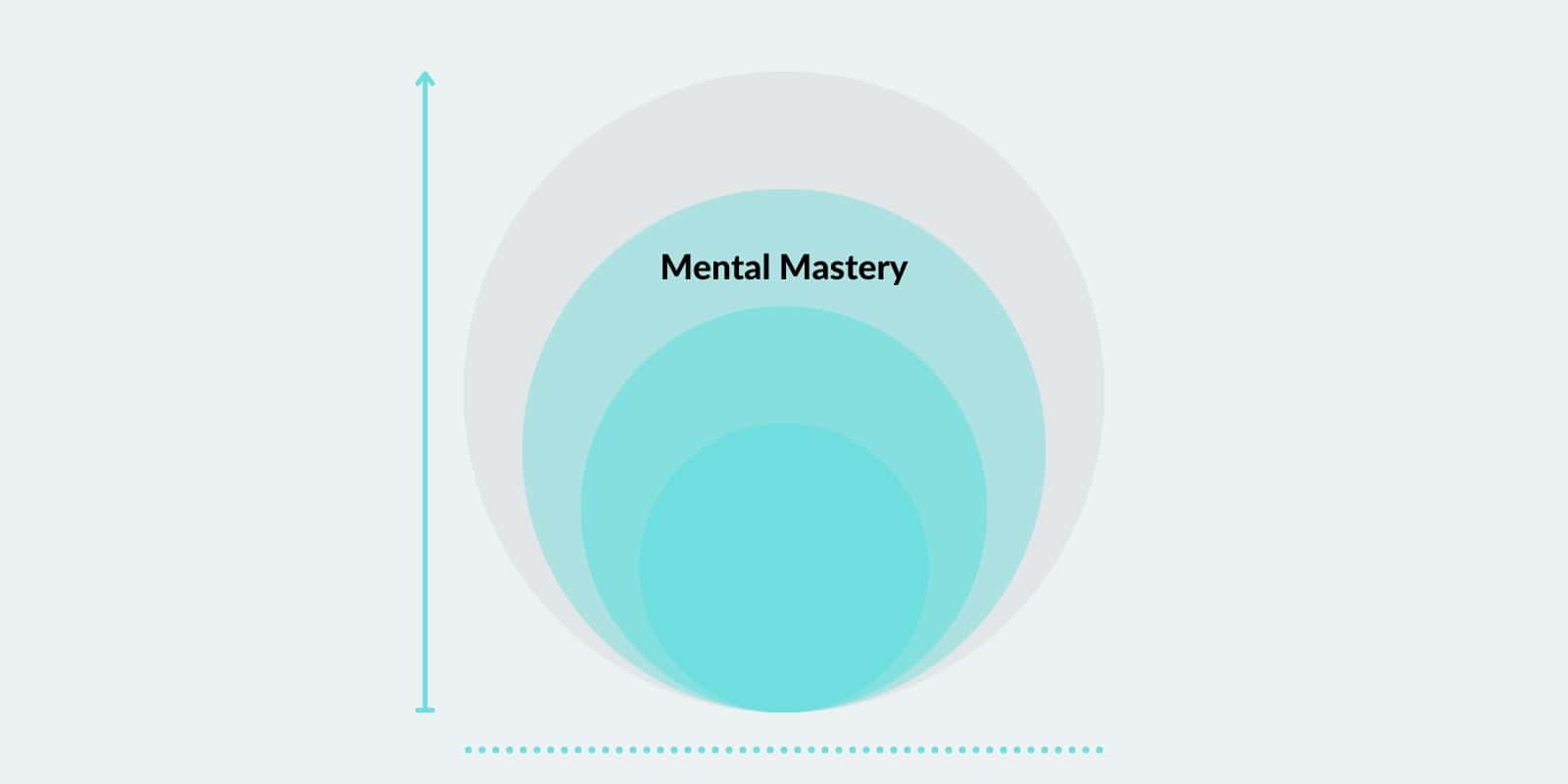
🐉 What’s the purpose of myths?
Naturally, a good bit of Joseph Campbell’s The Power of Myth (Series Summary) is about mythology, myths, rites, rituals, etc. If you read the first section above about the hero’s journey, none of the following should be too surprising.
Mythology is about you and your transformation of consciousness:
- “All of the symbols in mythology refer to you … What all the myths have to deal with is transformation of consciousness. You’re thinking in this way, and you have now to think in that way … Myths have to do with deep inner problems, inner mysteries, inner thresholds of passage … Myths are clues to the spiritual potentialities of the human life … What the myths are for is to bring us into a level of consciousness that is spiritual.” — Joseph Campbell
Ultimately, myths point to the transcendent:
- “The basic theme of all mythology is that there is an invisible plane supporting the visible one … Myth is that field of reference, metaphors referring to what is absolutely transcendent … It’s the edge, the interface between what can be known and what is never to be discovered, because it is a mystery transcendent of all human research. The source of life: what is it? No one knows … Myths are there to help us go with it, accept nature’s way and not hold to something else.” — Joseph Campbell
What’s the myth of the future?
- “The only myth that’s going to be worth thinking about in the immediate future is one that’s talking about the planet—not this city, not these people, but the planet and everybody on it. That’s my main thought for what the future myth is going to be. And what it will have to deal with will be exactly what all myths have dealt with: the maturation of the individual, the gradual, the pedagogical way to follow, from dependency through adulthood to maturity, and then to the exit and how to do it. And then how to relate to this society, and how to relate this society to the world of nature and the cosmos. That’s what the myths have all talked about; that’s what this one’s got to talk about. But the society that it’s going to talk about is the society of the planet, and until that gets going, you don’t have anything.” — Joseph Campbell
3️⃣ Explore More: 100+ posts on Mental Mastery (Sloww Stage 3)
🧠 Featured Product: Mini Mind: 365 Days of Bite-Size Brain Food
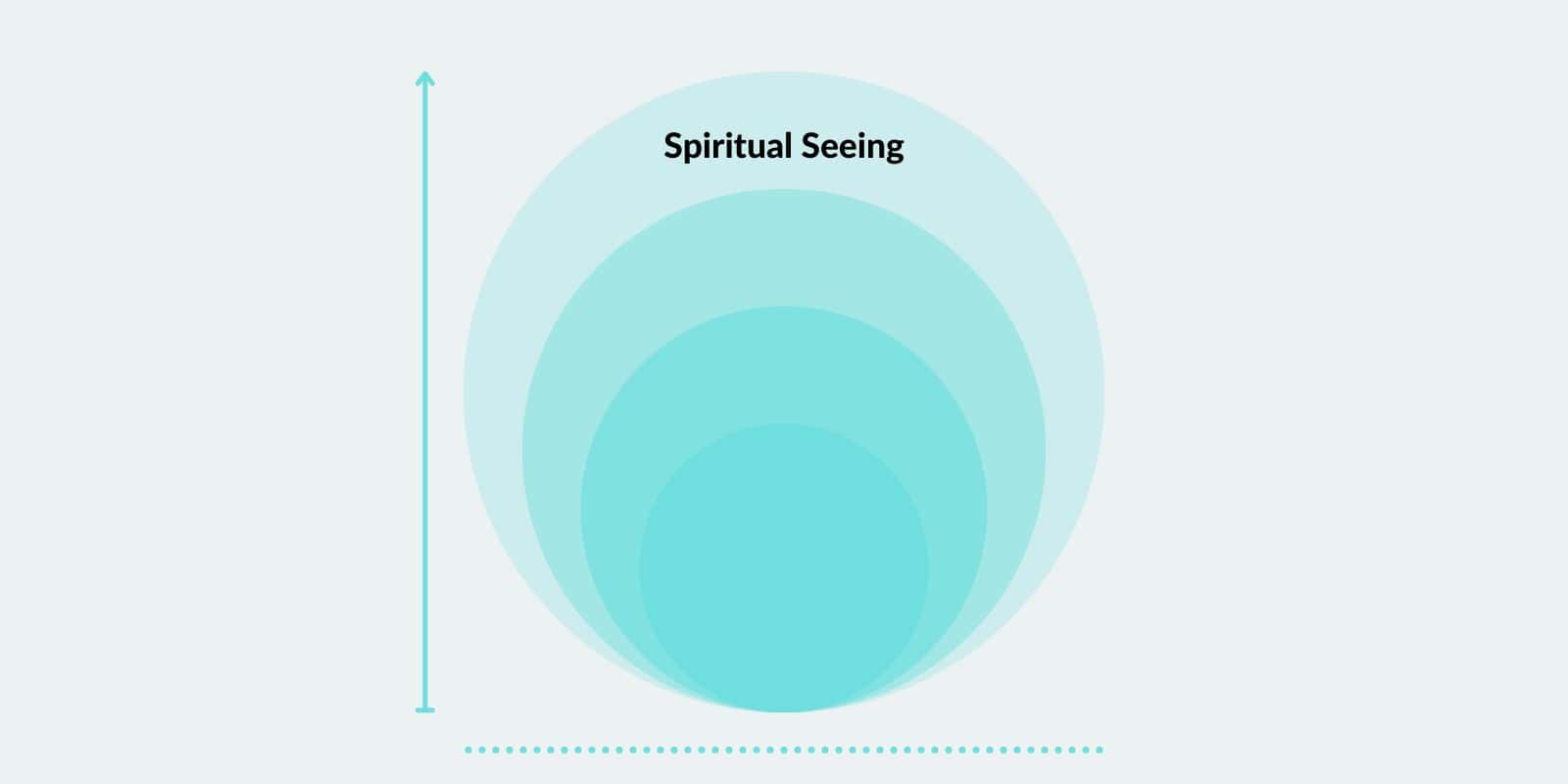
👀 On the experience of being alive
One final lesson learned from Joseph Campbell’s The Power of Myth (Series Summary):
- “People say that what we’re all seeking is a meaning for life. I don’t think that’s what we’re really seeking. I think what we’re seeking is an experience of being alive, so that the life experiences that we have on the purely physical plane will have resonances within that are those of our own innermost being and reality. And so that we actually feel the rapture of being alive, that’s what it’s all finally about, and that’s what these clues help us to find within ourselves.” — Joseph Campbell
- “What’s the meaning of the universe? What’s the meaning of a flea? It’s just there, that’s it, and your own meaning is that you’re there. Now we are so engaged in doing things, to achieve purposes of outer value, that we forget that the inner value, the rapture that is associated with being alive, is what it’s all about.” — Joseph Campbell
- “Any world is a living world if it’s alive, and the thing is to bring it to life. And the way to bring it to life is to find in your own case where your life is, and be alive yourself … What we’re looking for is a way of experiencing the world in which we are living, that will open to us the transcendence that informs it, and at the same time informs ourselves within it. That’s what people want, that’s what the soul asks for.” — Joseph Campbell
4️⃣ Explore More: 100+ posts on Spiritual Seeing (Sloww Stage 4)
👣 Featured Product: Wise Walk: 365 Days of Enlightening Exercise
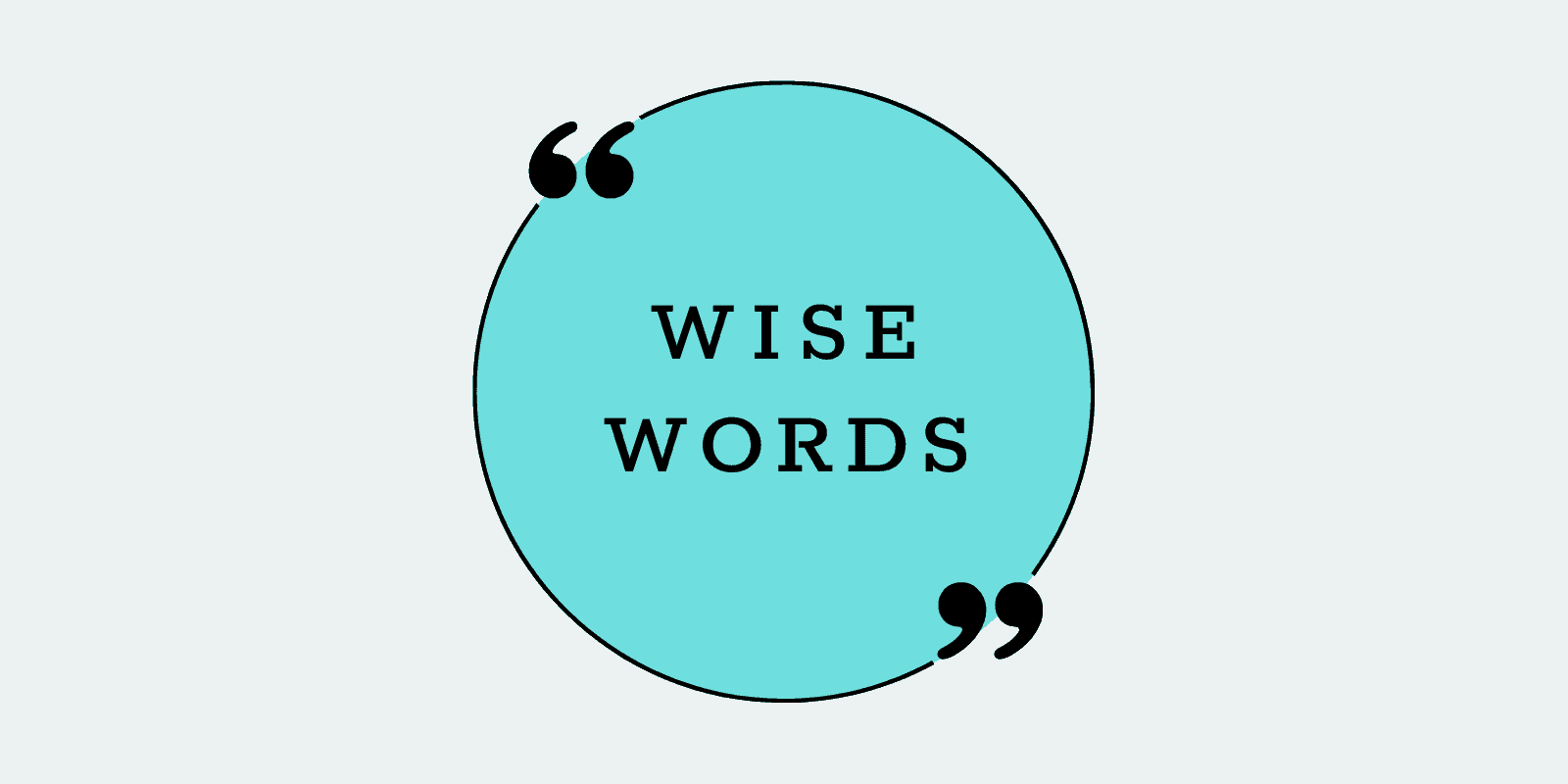
We’ll end with this wonderful excerpt of Joseph Campbell paraphrasing Arthur Schopenhauer:
“Now, there’s a wonderful work of Schopenhauer’s; he says, ‘When you reach a certain age,’ and he wrote this when he was in his 60s or so, ‘and look back over your life, it seems to have had an order. It seems to have had been composed by someone. And those events that when they occurred seemed merely accidental and occasional and just something that happened, turn out to be the main elements in a consistent plot.’ So he says, ‘Who composed this plot?’“
“He said, ‘And just as your dreams are composed by an aspect of yourself, of which your consciousness is unaware, so your whole life has been composed by the will within you.’ Then he says, ‘Just as those people whom you met by chance became effective agents in the structuring of your life, so you have been an agent in the structuring of other lives, and the whole thing gears together like one big symphony,’ he says, ‘everything influencing and structuring everything else.’“
“And he said, ‘It’s as though our lives were the dream of a single dreamer, in which all the dream characters are dreaming too, and so everything links to everything else, moved out of the will in nature.’ It’s a beautiful idea.”
Share: Sloww Sunday currently sends to 10,000+ students of life each week. If you enjoyed this issue, please help grow Sloww by forwarding this newsletter to some friends and family. It’s free for them to subscribe here.
Support: Sloww is a one-human labor of love (it’s just me over here 👋). Your support keeps the site ad-free and invests in me while you invest in yourself—a true win-win! There are free and financial ways to support.
Speak: Have something you want to say, or just want to say hi? It’s always greatly appreciated. Just leave a comment or reach out socially.
All the best,
Kyle Kowalski
Founder, Sloww




